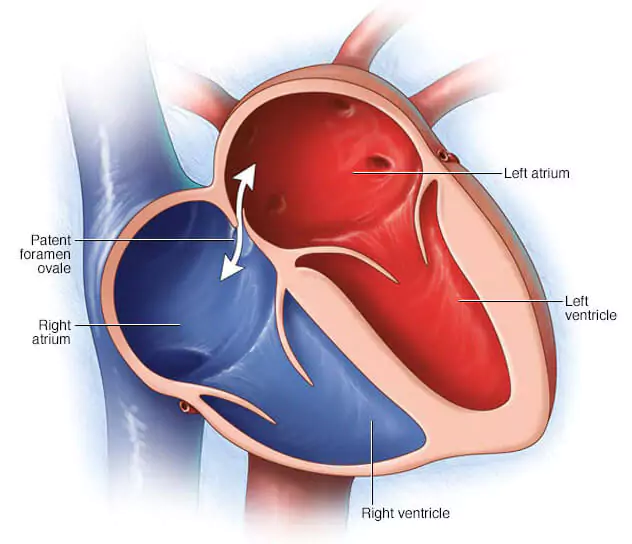
Atrial Septal Defect (ASD) is a congenital heart condition where a hole exists in the wall (septum) separating the two upper chambers of the heart. This defect allows oxygen-rich blood to mix with oxygen-poor blood, making the heart and lungs work harder. If left untreated, ASD can lead to serious complications such as pulmonary hypertension, arrhythmias, or heart failure.
ASD Closure Surgery is a safe and effective procedure designed to repair the hole in the heart and restore normal blood flow, significantly improving a patient’s health and quality of life.
An ASD may vary in size and severity. In small cases, the hole may close naturally during childhood, but larger defects often require medical intervention.
Types of ASD include:


While generally safe, ASD closure procedures carry potential risks, such as:
Choosing an experienced cardiac surgery team significantly reduces these risks and ensures the best possible outcome.
ASD Closure Surgery is a highly effective treatment that can prevent serious heart complications, restore normal circulation, and dramatically improve quality of life. With modern catheter-based techniques, open-heart surgical expertise, structured recovery pathways, and dedicated follow-up care, patients can expect excellent long-term results and a swift return to normal life.
Early diagnosis, timely intervention, and expert cardiac care are the keys to a healthier heart and a brighter future for patients with an atrial septal defect.


Chairman of Fortis Escorts Heart Institute & Fortis Healthcare Medical Council
CONSULTS ATFortis Escort Hospital
EXPEREIENCE :Chairman of Fortis Escorts Heart Institute & Fortis Healthcare Medical Council
CONSULTS ATFortis Escort Hospital
Director & Head - CTVS Cardiac Sciences, Cardiac Surgery (CTVS)
CONSULTS ATMax Super Speciality Hospital, Vaishali, Ghaziabad
EXPEREIENCE :Director & Head - CTVS Cardiac Sciences, Cardiac Surgery (CTVS)
CONSULTS ATMax Super Speciality Hospital, Vaishali, Ghaziabad
Executive Director, Pediatric Infant Cardiac Surgeon
CONSULTS ATFortis Escort Hospital
EXPEREIENCE :Executive Director, Pediatric Infant Cardiac Surgeon
CONSULTS ATFortis Escort Hospital
Principal Director - Cardio Thoracic & Vascular Surgery
CONSULTS ATMax Super Specialty Hospital, Saket
EXPEREIENCE :Principal Director - Cardio Thoracic & Vascular Surgery
CONSULTS ATMax Super Specialty Hospital, Saket

![]() Istanbul, Turkey
Istanbul, Turkey
Acibadem healthcare network in Turkey: A global leader in advanced medical care and innovation.
![]() Sector 51, Gurugram, India
Sector 51, Gurugram, India
Artemis is the first JCI and NABH accredited multi-specialty hospital in Gurgaon.
![]() Rajendra Place, New Delhi, India
Rajendra Place, New Delhi, India
One of Asia's largest Bone Marrow Transplant center with 1500 healthcare providers
![]() Vasant Kunj, Delhi
Vasant Kunj, Delhi
NABH accredited hospital, NABL accredited LAB, NABH accredited blood bank, Green OT certification